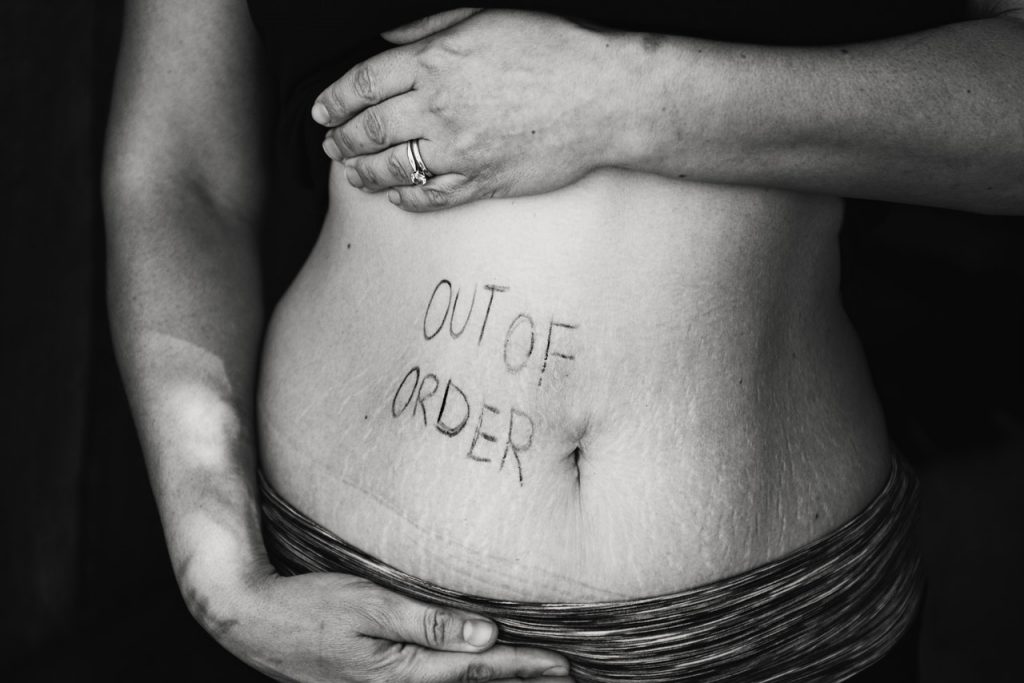

Hypothesis and Emerging Research
Can MDMA-Facilitated Couples Therapy Help People Heal from PTSD?

There was a time when people thought post-traumatic stress disorder was a life sentence. They could put you in group therapy to manage your anger better or to work on your relationship skills, or to cope with daily stressors, but they couldn’t fix your PTSD.
That’s changed, says professor and traumatic stress expert Candice Monson, PhD. Monson has spent her career developing psychotherapies that work, and she says that a PTSD prognosis now is totally different than it was twenty years ago. Now, with evidence-based therapies, people can heal from PTSD in a way that we don’t see with other mental health issues, like depression and anxiety.
What’s become clear to scientists over the past two decades is that close relationships, including romantic relationships, are a vital factor in healing from trauma-related disorders. In 2012, Monson and her colleague Steffany Fredman, PhD, published a manual on a relationship-based treatment for PTSD. That technique, called cognitive behavioral conjoint therapy, involves couples therapy specifically tailored to trauma healing, and it has been shown to significantly improve PTSD symptoms, trauma-relation cognitions, and relationship functioning. It’s also possible that CBCT can be made even more effective with use of the psychedelic drug MDMA.
With the support of the Multidisciplinary Association for Psychedelic Studies, including training for MDMA-assisted psychotherapy under Michael and Annie Mithoefer, Monson has spent the last few years investigating whether MDMA can enhance the effects of CBCT. So far, the first pilot study has had good results. While Monson is careful to state that psychedelics are not a panacea, she is hopeful that this research could continue to illuminate a worthwhile healing modality.
A Q&A with Candice Monson, PhD
There are a few reasons why we are investigating MDMA-facilitated therapy for couples in which one person has PTSD. While MDMA therapies are being tested for individual people with PTSD, there are reasons to think that MDMA may be particularly useful in a relationship-based therapy for PTSD.
Emotional bonding: The best classification of MDMA is within the category of empathogens, meaning that it evokes empathy and connection with other people. It makes you sweet on people. You want people to know you, and you want to know them. That’s a powerful mechanism.
For couples who live in distress, it’s easy to start to not like each other very much, and it gets harder and harder to engender empathy for each other. When MDMA is used in couples therapy, there is this pathway of wanting to know each other that probably engenders feelings that there’s something there between them, including all the reasons that the couple came together in the first place.
Cognitive openness: The other mechanism that gets talked about in the literature, and certainly that I’ve observed watching these couples, is this sense of expansiveness and openness, such that your emotions can’t hurt you. If you’re having a really painful experience, you can be in that pain, but there is also a sense that you’re removed from it. You’re not as reactive to whatever’s being talked about. And from what I’ve seen, I think MDMA also makes it more possible to stay in those hard conversations longer. If you’re guiding couples to talk and they’re feeling more connected, and then you’re guiding them to talk about potentially very difficult things that they’ve either experienced themselves or experienced together—against the other or with the other—there is a certain level of: I can go there. I can talk about this.
That alone can help them get to a greater sense of resolution. Not that the problems ever get resolved—most couples never resolve their core problems, because most problems in couples are not solvable—but it allows the people involved to talk about these issues longer and gain more perspective. Like: I may not agree with you, but I can better get where you’re coming from because I’m not having such a reactive, negative response to what you’re saying.
Shared experience: In addition to all the things that MDMA does to increase the bonding chemicals—the rushes of oxytocin, norepinephrine, and serotonin—there’s also something about being willing to do this thing together and doing it together that’s probably part of the power of this intervention. It’s a shared novel experience. In this study, there was one person we treated who’d had an MDMA experience prior to this therapy, but most everyone was drug-naive. For the couples in which neither person had previously experienced MDMA, it was like, Oh, like we’re trying this unknown thing together.
Our study was the first study to pair MDMA with a psychotherapy that had been established outside of MDMA. There were two big questions I had going in: First, is it safe? Can we collect safety data? And then my second question was really: Is it worth it? Compared with depression, bipolar disorder, or generalized anxiety disorder, the treatment effects for established PTSD psychotherapies are really big. So when we add MDMA into the mix, the question becomes: How much better are the treatment effects, given all of the work to put MDMA alongside it?
From what we’ve seen in this pilot study for MDMA-assisted cognitive behavioral conjoint therapy, the effect size seems to be greater than when we don’t use MDMA in the same therapy. We need to do a controlled study to see how much greater, but the results of the pilot show that for the person with PTSD, the overall effects on their PTSD as well as their other mental health conditions were bigger with MDMA than without. The effects for relationship functioning satisfaction were larger. And people not only maintain their gains, but it looks like they might continue to get better over time, which is a novel finding.
As a scientist, I’m being critical and skeptical—we need to make sure these effects replicate in a larger trial before drawing any major conclusions—but this pilot study definitely provides proof of concept.
In CBCT for PTSD, we really conceptualize PTSD as a joint problem. In the business, we do something called externalizing the problem, which means we take a problem out of one person and put it between them. That’s true of most kinds of couples and family therapy. You’re trying to not have one person be the problem person but rather seek to understand what it is about how these two people interact that’s maintaining whatever problems they’re having in the relationship, as well as individually.
So with that in mind, I made a big pitch: If couples therapy is a treatment where both people are being treated and both are involved in fixing the problem, then we should ask the FDA to allow us to dose both people. In this study, that includes one partner who has PTSD and one who does not.
Fortunately, the FDA saw the value of both people being dosed in treatment, and they did approve it. So we were able to have both members of each couple take MDMA. At what we thought were two important points in the seven-week-long therapy, the couples took what they had learned in previous weeks of CBCT and practiced it under the influence of MDMA.
What’s interesting about this study that opens the door to MDMA potentially getting approved for other couples therapy interventions where people may or may not be living with mental illness.
There was a lot of “It changed my life.” We hear that with PTSD therapies in general because they’re so effective. But there was a common and more specific thing people talked about here: MDMA alleviated some of the discomfort of self-disclosure. The people with PTSD said things like “There’s no way that I could have talked about my traumatic experience and what happened to me with as much openness had I not been under the influence of MDMA.” Their qualitative experience was much different from those of people in similar therapies where MDMA is not used; they were able to go into their memories with a much greater ease.
Their partners also noted they were better able to connect with these difficult experiences and feelings. They said the MDMA helped them to hear very hard things about what their loved one had gone through. There was one instance where the partner knew most all of the information about what had happened to their loved one but said something along the lines of, “I heard for the first time for what it was like for them to experience that.” The drug seems to potentiate the ability to feel what that traumatic experience was like without immersing themselves in it or making it unbearable to hear.
For me, as a scientist and methodologist, the issue of designing a control condition for psychedelic research is really interesting because it’s very rare for people not to know that they got a psychedelic. Researchers are running into this issue where people feel disenfranchised and upset when they get the placebo. To me, that’s a puzzle: How do we think about the control? People have talked about using other medications that cause a flush response or other extra parietal side effects that show up at higher doses of MDMA, like tightness in the jaw or the cogwheeling in their arms—the other ways people know something is going on. What we’re thinking of doing in our study is a controlled trial where some couples will be at a higher dose of MDMA, and others will be at a moderate dose where it may be that they get less of the psychedelic effect and more of the empathogenic effect.
This solution is relevant to the outcomes of the study: If you’re going to try to have a couple have a conversation together and not get distracted, a moderate dose might be a better fit. At the higher dose, people have talked about more internal and sensory experiences, like the beauty of lights and sounds. So while we’re trying to control blinding—how you hide the fact from someone whether they got MDMA or not—we’re also asking what might be a more optimal dose in a couples therapy context where you want people to interact and have an external, relational experience.
When I started this work in 2015, people were like, “Aren’t you scared about your reputation?” and like, “People are going to think you’re fringe-y.” Now, five years later, I gave a talk on our outcomes, and the feedback was really different. I was hearing people say these are amazing results, and things like “I would love to get treatment effects like that.” I was my own case study in how people’s attitudes have changed toward psychedelic research. Suddenly, it’s just not so out-there as an idea.
Candice Monson, PhD, is a professor of psychology at Ryerson University in Toronto and one of the investigators in the Multidisciplinary Association for Psychedelic Studies’ trials for MDMA-assisted cognitive behavioral conjoint therapy for PTSD. Her research, which focuses on the interpersonal factors involved in trauma-related disorders and developing effective therapies for PTSD, has been funded by the US Department of Veterans Affairs, Department of Defense, National Institute of Mental Health, and Centers for Disease Control and Prevention and the Canadian Institutes of Health. Monson completed her doctorate at the University of Nebraska and her postdoctoral fellowship in forensic psychology at the University of Missouri, Kansas City, and she is a fellow of the American and Canadian Psychological Associations and the Royal Society of Canada.
This article is for informational purposes only, even if and regardless of whether it features the advice of physicians and medical practitioners. This article is not, nor is it intended to be, a substitute for professional medical advice, diagnosis, or treatment and should never be relied upon for specific medical advice. The views expressed in this article are the views of the expert and do not necessarily represent the views of goop.


